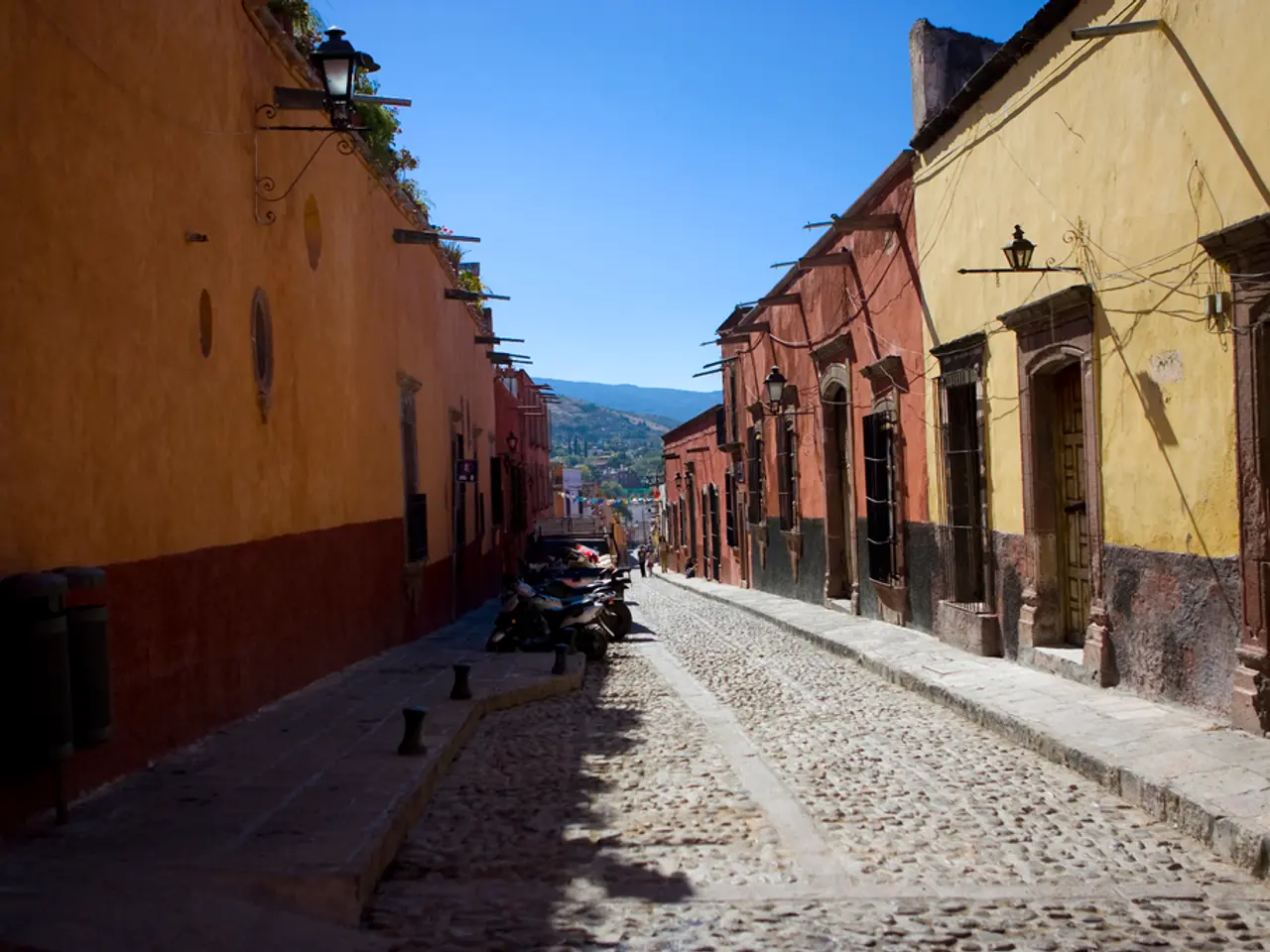Building Expansion and Territorial Acquisition in the West Bank
In a move that has sparked international concern, the Israeli government is pushing ahead with plans to build the E1 settlement in the West Bank, a project that could potentially undermine the territorial continuity needed for a two-state solution.
The Israeli Finance Minister, Bezalel Smotrich, who lives in an illegally built settlement, has been a strong advocate for this project. He recognizes the annexation of the West Bank as the core of his political activity.
The E1 settlement, if built, would primarily serve Jewish inhabitants, as reported by the Israeli daily "Haaretz." The road, if constructed, would connect Palestinian villages in the north of the West Bank with those in the south and divert Palestinian traffic from Route 1. However, the construction of this road would bisect the West Bank, severing territorial continuity between Ramallah (north) and Bethlehem (south).
This division would obstruct the formation of a contiguous Palestinian metropolitan area encompassing Ramallah, East Jerusalem, and Bethlehem, which is vital for the viability of a future Palestinian state. As a result, the E1 settlement plan is widely seen as a decisive blow to the prospects of the two-state solution.
The construction of the E1 settlement would also create a geographic reality fundamentally incompatible with the establishment of a sovereign and contiguous Palestinian state. By fragmenting the West Bank, the project would make it difficult, if not impossible, to build a viable Palestinian state.
The Israeli government is moving quickly with this project, with plans for 3,401 housing units in the E1 area near Ma'ale Adumim moving towards final approval as early as August 2025. The Israeli Higher Planning Council is scheduled to discuss these plans imminently, following a recent fast-tracked objection process.
It is important to note that the presence of Israel in the occupied Palestinian territories is considered unlawful by the International Court of Justice (ICJ), which has confirmed that all Israeli settlements in the West Bank and East Jerusalem are illegal under international law.
Despite this, various Israeli governments have been allowed to continue with settlement construction, a practice that is prohibited by international law according to the Fourth Geneva Convention of 1949. To date, there are between 600,000 and 750,000 Jewish Israeli settlers living in at least 290 settlements and outposts in the Israeli-occupied West Bank and East Jerusalem, established in violation of international legal norms.
The international community has allowed the establishment and continuation of Israeli settlements in the occupied territories, a stance that has been criticised by many. No European country has effectively opposed the illegal settlement construction in the West Bank and East Jerusalem.
Aliza Herbst, who moved from Texas to the West Bank in 1979 and settled in Ma'ale Adumim, has proposed that the Palestinians be moved to Jordan to make way for Jewish settlements. This proposal, however, is widely seen as unrealistic and unjust.
The Israeli government's actions in the West Bank are aimed at creating facts that are hardly reversible. The goal is to connect illegal Jewish settlements in the West Bank by closing building gaps between them, creating uninterrupted and expansive Jewish settlement areas that would be difficult to break up if there were ever an attempt to build a Palestinian state.
The construction of the E1 settlement was initially proposed in the early 1990s under Prime Minister Yitzhak Rabin but has been on hold since 2005 due to international criticism. The international community must now decide whether to allow this project to proceed, a decision that could have far-reaching consequences for the future of the Middle East.
The E1 settlement plan, which is moving towards final approval by the Israeli government, has sparked international concern due to its potential undermining of territorial continuity needed for a two-state solution, a key element in general news and political discussions about war-and-conflicts in the Middle East. The international community's continued allowing of Israeli settlement construction in the occupied territories, as shown by no European country effectively opposing it, is a point of criticism in the broader context of politics and general news coverage related to war-and-conflicts.







